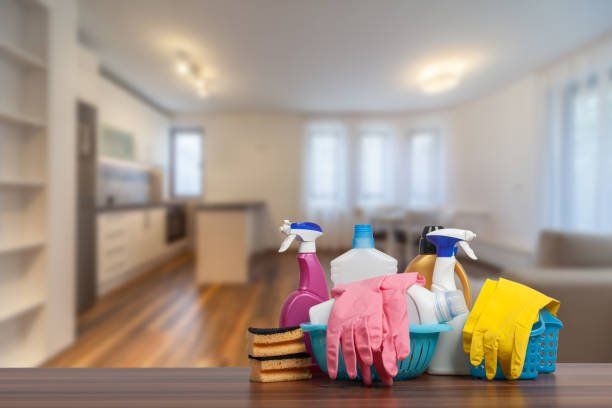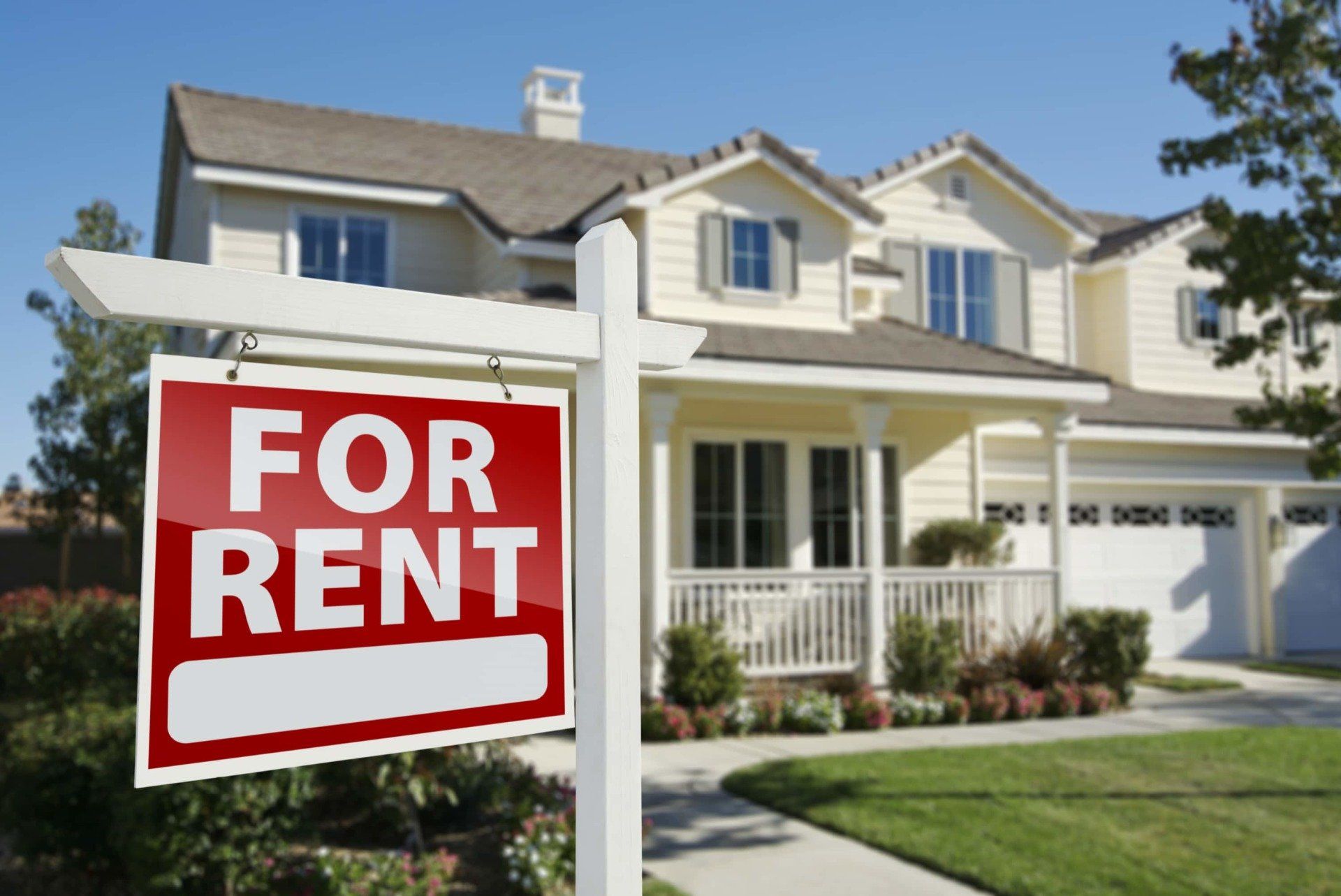Blog
Blog

By Kenzie Lowry
•
11 Feb, 2022
Sharing a living space with one or more roommates can often be a difficult, but also rewarding experience. It is nice to have roommates to help chip in on the bills, and also to spend time with, but sometimes when you combine many different personalities under one roof-you may find that you each are used to different living habits or ideas thereof. This article will help provide you with some tips on discussing cleaning and preventing clutter and/or messes in your household while sharing space with one or possibly even multiple roommates, all the while hopefully preventing conflict while doing so. Define your definitions and expectations of clean early on- One of the best things to do when moving in with roommates is to sit down with them when you are first moving in and discuss what you all expect from one another in regards to cleaning common areas in the household and whether chores should be done daily, weekly, monthly, etc. Discussing this and setting expectations for everyone ahead of time can help prevent issues and conflicts further down the road. Discuss a cleaning schedule/chore wheel-After you and your roommate(s) have discussed with one another what your expectations are on keeping common areas of the household clean, it may help to break down a list of typical chores and cleaning tasks that will need completed each day, week, and month to keep your unit neat and tidy. After preparing this list, you can assign these tasks to one another and switch them up each week/month to make sure everyone is equally contributing to their share of the chores in the household. This can help make sure all tasks are being done and that everyone is equally contributing to the cleaning, as well as making it fair to all roommates since the schedule will be in a rotation to assure each person has their turn in the less-than-loved chores that need completed. Have weekly/monthly roommate meetings to hold each other accountable-If you have had a roommate in the past, you may have had a situation where things started out great in the beginning, but slowly began to decline as time went on. One of the best ways in preventing this is to discuss and set weekly or monthly meetings with your roommate(s) ahead of time when you first move-in together and make sure that you always find a time to hold those meetings! During this short discussion together, you can make sure you are holding each other accountable for completing all household tasks, or discuss any concerns you may have if one of you may be lacking. However, you will want to make sure to discuss any concerns as respectfully as possible to avoid any friction, and remember that you are living and sharing this space together so it is best to work together with one another to care for and take pride in this space as your own. Show appreciation when roommates are helping- Although you are all sharing the household together and should all equally be contributing to keeping the common areas clean and clutter free, it helps to show appreciation when a roommate is doing their part to keep up with the chores in the house and/or are even going above and beyond to keep your living space looking nice and tidy! Take the time to thank your roommate when you notice them doing the dishes, taking out the trash, or re-organizing that cluttered storage closet, just so that they know they are appreciated and that it is not going unnoticed. If you are feeling extra generous, you may even get them a small gift as a token of appreciation-bake them some goodies, leave a small note thanking them for all that they do around the house, or even leave them a $10 gift card to Starbucks (or their favorite store). Something minor like this can show that you appreciate a roommate for the work they are already doing, or may even be used as a bargaining chip to help in a situation where you aren’t sure how to motivate a roommate into keeping up with their current chore schedule without causing conflict. Living with roommates, there may be many different situations and instances that occur that will affect everyone in the household, and housekeeping seemingly is the number one area to cause the most friction. However, by keeping open communication between everyone, maintaining a proper cleaning schedule, and by following some cleaning tips, hopefully you will find a plan that works best for you and all of those in your home, while also keeping a clutter-free living space. There are often times where you may move into a house with roommates you have never lived with before, and you may find that your house-keeping habits are not in sync with those of your roommate(s). It can be challenging to attempt to change your roommate’s behaviors or habits but you want to remember to never be hostile while expressing any concerns, keep an open mind, and to attempt to give your roommate enough time to adapt to the change in circumstances. Knowing the best tactics and tone to take when discussing these concerns with one or more roommates is essential to ensure a happy outcome for the both of you and your living situation.

By Appfolio Websites
•
19 Feb, 2020
Deciding to purchase a home is a big decision that many often contemplate for years before making a move. There are numerous advantages to buying your own home yet there are also disadvantages as well, which lead many to remain renting rather than committing to purchase. 1. To move into a rental property, the upfront costs are often an application fee, security deposit, first month’s rent, and pet fees if applicable. If you were to purchase a house, you would need to save much more to invest in a down payment. These costs often run between 2-5% of the total cost of the home. You may also be charged application fees, underwriting fees, and other fees to your lender for their services of preparing your loan. When purchasing a home, you also want to consider that you will be paying fees in regards to your title, title insurance, homeowner’s insurance, appraisals, pre-paid property taxes, state recording fees, and many more. If you have saved up enough money to prepare for all of these costs, they may seem as less of a burden. However, if you do not have a few thousand saved up already, renting may be the best option for you and your present budget. 2. Renting could help you save/make money! You’re probably wondering how one could possibly make any money while paying to reside in a rental unit. Say you DO have a good chunk of money saved up to where you could afford a down payment on a home, but you’re still not entirely committed to that decision? Place those funds into savings accounts that give high return in the meantime while you are still only responsible for rent (and sometimes utility costs) at a property. When/if the time comes that you decide you are ready to purchase a home, you now have even MORE saved up that could go toward all of the costs of buying, so you will have peace of mind knowing you’re financially secure. 3. You will save on repair costs by renting! Most landlords have in their leases that they will be responsible for the costs of repairs (besides any damages that you have caused to the property). This will save you money on smaller repairs such as a leaky sink, or even on the costlier repairs such as malfunctioning appliances, water heaters, or furnaces. 4. By renting, you have more flexibility to make moves. Most properties have tenants commit to signing a one-year lease. Once this year has ended, you can move to another property at any location you so choose. If you were to purchase your own home, and decide you want to move across town, or even across the country, you first must deal with listing and trying to sell your home all the while also looking for your new home elsewhere to purchase. The mobility advantage of renting gives you ease of mind when considering adjusting your dwelling due to family size, job opportunities, and more much. 5. Do you pay for a gym membership, or even a yearly pass to access a public pool? You could save numerous amounts of money on these yearly costs if you decide to rent at a property that contains such amenities within their complex. If you purchase a home, you could install a home gym and build your own pool so you would have privacy while enjoying these spaces. However, the costs to build either of these in your house could end up costing even more than a yearly membership to public accessible amenities, or could be FREE with your monthly rent deciding on where you choose to reside. 6. If you decide to purchase a home, you should know that property values can often fluctuate between an increase or a decrease. This could be either a benefit or a disadvantage when, or if, the time comes you must sell your home. If the value of your property were to decrease by the time you list it to sell, you could end up selling for less of what is owed and may end up having to pay off the remaining amount toward your mortgage at closing. If you are a renter, you would not have to worry of this matter as your monthly rent is at a locked rate, and runs only for the duration of your signed lease agreement, and then you are relieved of financial duties after moving. 7. Let’s talk insurance! Many landlords require that tenants carry renter’s insurance coverage, or even if it is not required of you, it is something you should consider! The average monthly cost for renter’s insurance could range between $10-$30 a month and often times covers all of your personal belongings and the property itself. When you purchase a home, most lenders do also require you to have home-owner’s insurance and the monthly cost for this could be anywhere between 2-4x the cost of renter’s insurance. 8. Saving on utility costs is often an advantage of renting! Although this is not always the case since there are large homes also available to be rented. However, if you are renting an apartment, often times the floor-plans are more compact which means you will be paying to heat and provide power to a much smaller area. Some apartments may even have some or all utilities included in the rent! This is something to consider if you are worried about the cost of all of the utility bills each month on a larger home. These are just a few of the reasons why many have decided to stick with renting, over purchasing a home. Whether it be permanent, or even just a temporary circumstance for a few years, you could potentially save a lot of money by choosing to rent. If you prefer flexibility, less financial burden, and less stress of unexpected and costly repairs, then renting may be the best option for you! However, not all situations are the same for every person so you should consider all pros and cons of both renting and purchasing before deciding which option is best for you!

By Appfolio Websites
•
04 Dec, 2019
Winter is coming! Did you know that the first day of winter isn't actually until December 21st? The temperatures have been dropping already, and will only continue to do so even more during these next couple of months. The following steps will help you to prepare your rental home/apartment for the winter so you can prevent wasted energy and other costs. Open your curtains during the day, and close them at night. If any of your windows face the sun, opening your curtains will help to let some natural light and heat into your home. Just remember to close the curtains at night, to help trap in that warm air and prevent drafts. If you don't have curtains, purchase them! Hanging normal or especially heavier thermal curtains can significantly help in insulting your windows during the winter months! Keep doors to small, unused spaces closed. If you have any small closets in your home, closing the doors will help in minimizing the space that is requiring heating so that your living areas are nice and warm! Replace your air filter. The air filters in your furnace should be changed about every three months. A dirty air filter can effect how well your furnace is heating your home which can cause higher bills and can even potentially be unsafe. Use a window insulation kit. If you reside in a property with older or drafty windows, you can purchase an at-home window insulation kit from many local stores. These will come with plastic to cover your windows to help keep the cold air out, which can show a significant difference in retaining heat! Bundle up. For every degree you lower on your thermostat, you could potentially save between 1-4% on your bill. Consider lowering your heat just a degree or two, and bundling up in blankets or hoodies. However, the thermostat should never be set below 55 degrees in order to prevent damage to your pipes from freezing. Look for large gaps under your doors. If any of the doors in your home have a large gap underneath, you can purchase a "door-sweep" that slides right underneath it to seal it up. These are sold at most hardware stores and can either be plastic, or even fabric. You can even roll up a towel to run along the bottom length of the door if you wish to be even most cost-efficient. Use your ceiling fan! Most people will shut their ceiling fans off during the winter. You can turn your fan to spin in a clockwise direction. Since heat rises, this will push warm air down and will also pull the cold air up. Smoke Detectors. You should periodically be testing the batteries in your smoke (and carbon monoxide if you own one) alarms. As the seasons change, you should go ahead and replace all of those batteries so you can feel safe in your home the remainder of the winter. If your pipes freeze. In the unfortunate event that your pipes do freeze, shut off the water valve to help lessen the damage to your home. Make sure your heat sources aren't blocked. Now is a great time to re-arrange the furniture in your home! Although this one seems obvious, many times a vent or radiator is blocked by furniture which can prevent proper and efficient heating. When it is FREEZING. When the weather drops significantly, you can help to prevent frozen pipe damage by opening the cabinets to where your plumbing is located. This will make sure that heat is getting to those pipes! If the weather is REALLY cold, you may even consider letting your faucet drip slightly. Keep walkways clean! One of the biggest hazards during the winter months is slipping or falling outside. Make sure to shovel any snow and salt any ice to prevent injuries from slipping. Rugs. Many rooms in your home might have laminate, tile, or natural wood flooring. You'll notice as the weather drops, your floors may start to feel cooler as well to walk on. Consider purchasing rugs to help insulate your floors, and also so your feet can stay warm around the house! Replace your screens with storm windows. If your home currently has screens, now is a great time to remove those and purchase storm windows to help keep some of that cold air out! These tips are small, fairly inexpensive (or free) ways to help become more energy efficient so you can save money on heating costs, while also to making sure you have a safe and cozy winter in your home!
By Appfolio Websites
•
24 Jul, 2015
Check back soon for details about our showings and industry-related news!

